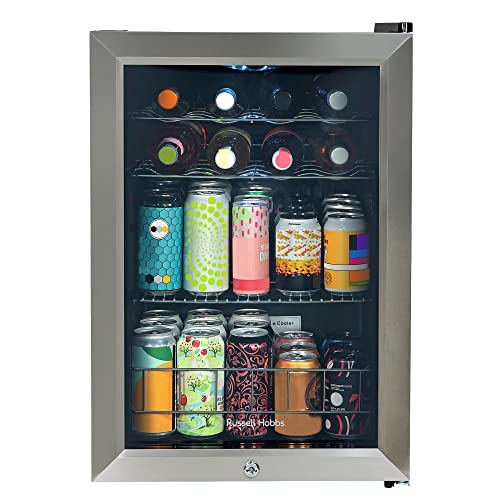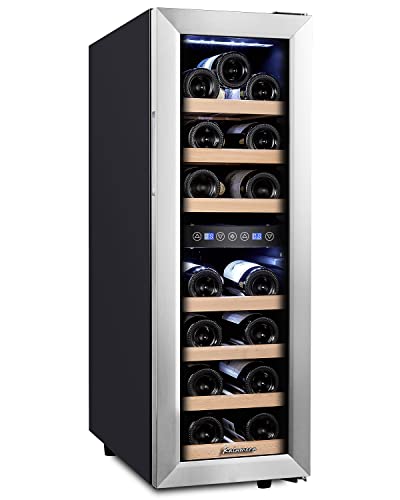Five Killer Quora Answers To Wine Fridge
페이지 정보

본문
 The Importance of a Wine Fridge
The Importance of a Wine FridgeIf you're a collector or enjoy the occasional glass with friends wine fridges are a cost-effective solution that helps nurture your collection over time.
The Peltier effect is used to create an effect of cooling in thermoelectric wine refrigerators. This is different from compressor-based systems.
Controlling Temperature
To ensure the quality of fine wine It is essential to keep the ideal temperature. Contrary to standard refrigerators, which maintain temperatures in an expansive range wine refrigerators are specifically designed to meet the unique requirements of different types by keeping temperatures within the narrower range. This allows an ideal maturation of a wine and transform it from a regular bottle into something unique over time.
The ability of a wine fridge to create the perfect conditions for wine is a result of the careful interaction between a variety of key attributes and technologies. The most crucial aspect is the internal cooling system. It is comprised of a thermoelectric Peltier module that is extremely efficient as well as a heat sink. The side of the Peltier module that absorbs heat decreases the internal temperature, while the other side releases the absorbed heat, creating an ideal cooler environment for wine and beverage fridge.
Wine fridges have a humidity control system that is precise. This is an essential feature, as it shields against cork deterioration and oxidation. Wine fridges typically maintain a relative humidity between 50 and 80%, achieving the right balance that stops dry corks from bursting out and allowing air in, resulting in spoilage.
The internal ventilation system in the wine refrigerator is a different element that helps to maintain a consistent temperature. The refrigerators are typically equipped with a powerful fan that circulates air through the entire cabinet, eliminating pockets of humid or warm air. This ensures that every bottle gets the same amount of cool air, regardless of where it's located in the fridge.
The cooling system has been designed to avoid vibrations, which can disrupt the consistent temperature distribution and lead to fluctuations. It is recommended to limit vibrations by limiting the number of times that you open and close the door of your refrigerator. Also, make sure that the bottles you put in your refrigerator don't block the vents and interfere with the fan.
The controlled environment of a wine fridge is vital not just for storing wine but also for other delicate food items like cheeses and charcuterie. These artisanal delights can be consumed at any point because they preserve their original flavors and textures. Additionally certain herbal and medicinal supplements benefit from storage in a cool and controlled environment to maximize their efficacy and potency.
Maintaining Humidity
Humidity is one of the factors that is often ignored when it comes wine storage. It can be easily managed. Humidity has a direct impact on the quality of your wine and is especially important for long-term storage. It is recommended to store wines in an environment with an even 50-70% RH level. The control of humidity is crucial to protect your collection from damage while ensuring optimal conditions for maturation.
Humidity can affect the delicate balance of aromatic compounds that influence wine's taste profile. Changes in the composition of these components could alter the flavor profile of wine and could also cause wine beverage fridge spoilage.
A hygrometer is the most effective way to regulate the humidity in your wine refrigerator. These devices are quite affordable and can assist you in creating the ideal conditions for your wine collection.
If you buy a premium wine fridge you will also be able to benefit from integrated humidity control systems that monitor and adjust humidity levels automatically, which ensures the best conditions for your wine. The humidity control prevents corks from drying out and expanding, which could allow air into the bottle and spoil the wine. It also prevents the risk of oxidation and ensures that labels are legible, which helps preserve the integrity of your wine and increases the value of your wine.
Other methods for increasing the humidity in your wine fridge are to put the container with water inside, which will slowly evaporate and raise the humidity levels. Another option is to utilize baking soda, which is renowned for its ability to absorb moisture. Place open baking soda containers strategically inside your wine fridge, and change them on a regular basis to maintain their effectiveness. You could also consider investing in an absorber of moisture that consists of a series of trays that contain mineral salts recognized for their ability to naturally absorb excess moisture from the air. This will not only help to stabilize wine temperatures but also guard against mold and other contaminants.
Redefining Aging Potential
It takes more than an area in the refrigerator to store wine properly. It is crucial to store wine in the most optimal conditions to ensure its ability to continue ageing. In contrast to standard refrigerators, which are specifically designed to keep food cool wine refrigerators are engineered to maintain optimal temperatures and humidity levels. This protects your investment by keeping the integrity of each bottle and guarding against premature oxidation and damage to cork.
Wine fridges come with the simplest, standard operation. The simplest models have one temperature setting which can be adjusted manually and more sophisticated dual-zone wine refrigerators permit you to store red and white wines at different temperatures. Internal fans ensure that all bottles get the same amount of airflow and prevent pockets of humid or warm air from forming. This helps ensure that all bottles receive the same level of cooling, allowing each one to reach its full aging potential.
Thermoelectric Top Rated Wine Fridge fridges depend on the Peltier effect to cool. Through the passage of an electric current through two pieces of steel that are joined to form a Peltier module absorbs heat from one side and expels it on the other. This process does not generate refrigerant and is therefore more secure than compressor-based wine chillers that use hydrofluorocarbon gas. Thermoelectric wine coolers wine are known for their energy efficiency, consuming less power to achieve the same cooling effects as compressor units.
It is essential to take into account the length of storage time when choosing a wine fridge. It is essential to keep phenolic compounds, which contribute to the wine's aroma and taste in a temperature range of 50degF to 55degF (10degC to 12degC) for long-term storage. For storage for short periods it is recommended to have a temperature that is slightly higher is required between 55degF to 60degF (12degC) in order to prevent premature oxidation.
The lighting system in a wine refrigerator is designed to minimize exposure to ultraviolet (UV) radiations which can quickly degrade wine by decreasing its aromatic compounds and color. Thermoelectric wine fridges and many of the compressor-based models today feature doors or glass that are UV-resistant to help protect your wine from damaging radiation. Some wine refrigerators also have vibration reduction mechanisms that reduce disturbances. This creates a calm environment to store old bottles.
How do you maintain the longevity of cork?
A wine fridge isn't just a convenient solution to store your wine It's also a guardian. A wine fridge guards your bottles from temperature fluctuations, humidity degradation and vibration disturbances, regardless of whether you're storing them for short-term storage or maturation.
Consistent temperatures will reduce the amount that oxygen seeps into corks, which causes your wine to spoil. This helps prevent oxidation that can cause wine to lose its vibrancy and produce off-flavors. Wine fridges maintain the ideal humidity level to prevent corks from shrinking and allowing air to enter the bottles and thereby losing their vibrancy.
This allows the cork to swell and form an airtight seal, which is crucial for long-term ageing. Most wine cooler under counter refrigerators come with compressor cooling or thermoelectric systems, which means you can choose the best option for your collection.
The dark environment of a wine fridge shields your bottles from harmful UV light. UV rays damage volatile compounds in wine which reduce the quality and speed the aging process. Additionally the dark interiors of wine fridges protect your wine from household odors which could alter the flavor and aroma. While a basic package of baking soda might be capable of absorbing some of these odors the wine fridge comes with built-in odour control systems that ensure your wines are always ready to serve.
 A wine fridge is the best method to keep from vibrations that can disturb your wine that has sat for a while, or affect its durability and tightness. This is particularly important since standard household fridges typically store foods as well - which includes aromatic leftovers that could get into your bottles of cabernet and overpower their natural flavors. Some wine cooler fridge fridges also have the technology of neutralization that eliminates unpleasant odours and smells from paint, cleaning products and other substances found in your household refrigerator.
A wine fridge is the best method to keep from vibrations that can disturb your wine that has sat for a while, or affect its durability and tightness. This is particularly important since standard household fridges typically store foods as well - which includes aromatic leftovers that could get into your bottles of cabernet and overpower their natural flavors. Some wine cooler fridge fridges also have the technology of neutralization that eliminates unpleasant odours and smells from paint, cleaning products and other substances found in your household refrigerator.- 이전글3 Reasons You're Not Getting Mystery Boxes Isn't Working (And How To Fix It) 24.12.01
- 다음글Find Out What Pragmatic Slots Site The Celebs Are Making Use Of 24.12.01
댓글목록
등록된 댓글이 없습니다.

